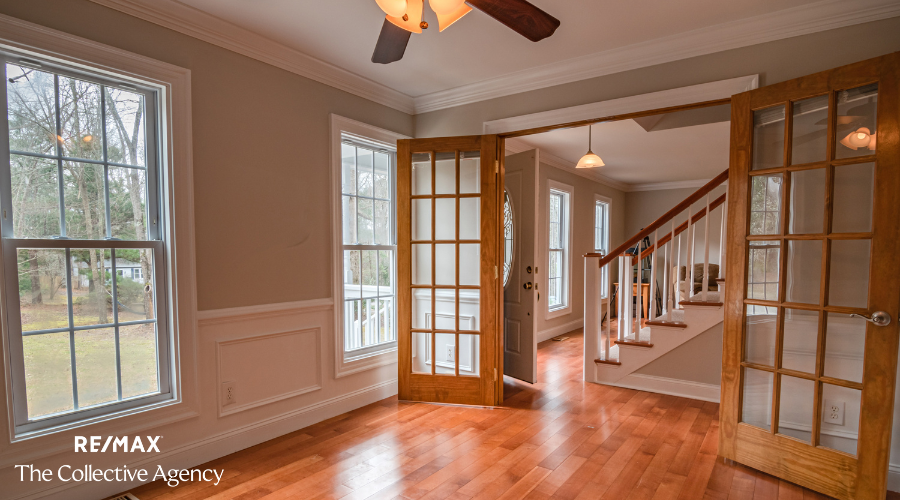Are you considering selling your Michigan home but torn between cash offers and traditional sales? You’re not alone. Many homeowners find themselves grappling with this pivotal decision, especially given that current market conditions reflect median home values at an impressive $273,000.
With urban areas witnessing notable growth, the choice you make could significantly impact your financial future.
Cash offers present a compelling option for those looking for a quick, hassle-free sale; typically closing in just 7-14 days, they come with fewer contingencies and allow for “as-is” purchases. However, traditional sales, while taking 30-90 days, can potentially yield up to 17% higher prices when the property is properly staged and prepared.
Understanding the nuances of both routes is crucial, as factors such as location, property condition, and your personal timeline will heavily influence the optimal choice for your unique situation. By delving deeper into these aspects, you can determine the most beneficial path for your needs.
Key Highlights
- Cash sales can close in as little as 7-14 days, compared to the typical 30-90 days for traditional sales. This quick turnaround makes cash offers particularly appealing for those facing urgent relocations.
- While traditional sales often result in higher sale prices, they usually involve additional costs for staging and repairs to enhance the property’s appeal.
- Cash buyers generally purchase homes “as-is,” which means sellers can avoid the hassle and expense of repairs and preparation work.
- Traditional sales may face financing contingencies and uncertainties, whereas cash offers provide a more straightforward, risk-free closing process.
- With Michigan’s rising market values, sellers who can afford to wait may benefit more from traditional sales, while those needing immediate liquidity might find cash sales more suitable.
Understanding Michigan’s Real Estate Market Dynamics
Navigating Michigan’s real estate market can feel daunting, especially with the rapid changes and diverse regional dynamics at play. As of 2024-2025, the housing landscape is undergoing significant transformations, and understanding these shifts is crucial for both buyers and sellers looking to make informed decisions.
Statewide, the median home value has reached $273,000, and while that figure might seem promising, it masks substantial variations across different regions. For example, urban areas like Detroit are witnessing an impressive 18.1% increase in median sales prices, now at $94,500, signaling strong growth potential. In contrast, suburbs such as Brighton and Grosse Pointe Park have even outpaced Detroit, with price hikes of 29.5% and 15.6%, respectively. This disparity raises important questions for prospective buyers: Are you prepared to navigate these fluctuating markets?
The Upper Peninsula, known for its affordability, offers a stark contrast to the urban amenities available in lower Michigan, yet it still attracts a demographic seeking value over convenience. Despite an influx of inventory—Southeast Michigan has seen a 13.2% rise in active listings—sellers continue to hold the upper hand, largely due to ongoing demand. In fact, many homeowners are opting for cash offers to expedite their sales process in this competitive environment.
Grand Rapids stands out with its balanced market conditions, combining favorable housing dynamics with robust economic drivers. This environment not only supports sustained growth but also presents opportunities for both buyers seeking homes and sellers looking to capitalize on their investments. Additionally, utilizing services like the Owner Advocate Program can help sellers maximize their selling price.
As you explore your options in Michigan’s evolving real estate landscape, consider these regional differences and market trends to make strategic decisions that align with your goals. Whether you’re entering the market for the first time or are a seasoned investor, understanding these nuances can significantly impact your experience and outcomes.
Key Differences Between Cash and Traditional Sales
When contemplating the sale of your home, one of the most pressing questions is often about the method of sale: cash versus traditional. The choice can significantly impact not only the timeline of your sale but also your overall financial outcome. Cash sales can close in as little as 7 to 14 days, while traditional sales typically stretch from 30 to 90 days. This difference is primarily due to the elimination of mortgage approval processes, which can often stall transactions.
The advantages of cash transactions extend well beyond quicker closings. Imagine selling your home without the usual contingencies that bog down traditional sales—no waiting for financing approvals, no need to sell another property first, and often no inspections required. This can dramatically decrease the likelihood of a sale falling through, a common concern for many sellers. Cash buyers frequently opt for “as-is” purchases, sparing you the burden of costly repairs or staging to attract potential buyers. Additionally, sellers can take advantage of the Owner Advocate Program designed for achieving optimal selling price and service. This program offers comprehensive solutions to customize your selling strategy based on individual goals.
While it’s true that cash offers may sometimes be slightly lower than what you might expect from a traditional sale, many sellers find that they still net comparable profits. This is largely due to the significant savings on expenses such as realtor commissions and reduced closing costs. Furthermore, cash sales provide a level of certainty that can be particularly advantageous in time-sensitive situations or when dealing with distressed properties. Additionally, sellers can benefit from a low-rate home selling program that allows for substantial savings on commission fees, maximizing their profits in the process.
Financial Implications for Michigan Home Sellers
Selling a home in Michigan can be a financially complex process that often leaves sellers grappling with numerous hidden costs. As you navigate the selling process, there are several expenses that you must consider:
- Transfer Taxes: In Michigan, these taxes are calculated at a rate of $4.30 for every $500 of the sale price. For a $273,300 home, this results in approximately $2,350 that will be deducted from your proceeds.
- Real Estate Agent Commissions: Traditionally, sellers pay between 5-6% of the sale price in agent commissions. However, exploring alternatives like flat-fee MLS services could reduce this cost to around 3%, providing a more budget-friendly option.
- Property Taxes: You’ll need to prorate your property taxes up to the closing date, ensuring that you only pay for the portion of the year you owned the home.
- Title Insurance and Escrow Fees: These necessary expenses, along with any potential Homeowners Association (HOA) dues, must be settled before the transaction is complete.
It’s important to recognize that the costs associated with selling can differ significantly between cash transactions and traditional sales. While cash buyers may present fewer contingencies, they could also lead to lower sale prices in some cases.
Evaluating Your Property’s Sale Readiness
Deciding to sell your property is not just a matter of putting a sign in the yard; it requires a comprehensive analysis of its readiness for the market. Professionally staged homes can sell up faster and fetch prices that are higher than those that are not. This highlights the importance of preparing your property effectively to maximize both the speed of sale and your financial return.
In traditional sales, investing in staging and necessary repairs can significantly enhance your property’s appeal. In Michigan, for instance, pre-listing inspections typically cost between $300-$350, but these investments can provide a solid return if the home meets current buyer expectations. However, if you’re looking for a quicker, albeit potentially less lucrative, route, cash sales allow for properties to be sold “as-is.” This means bypassing the extensive preparation and repair work, but be aware that offers in this category may range from 30-70% of fair market value (FMV).
Your property’s condition, your timeline for selling, and your financial goals should all play a crucial role in determining the best selling strategy. Are you prepared to make the necessary investments for a traditional sale, or does a cash sale appeal more to your immediate needs? Understanding these dynamics will not only shape your decision but also influence the overall success of your sale.
Making the Right Choice for Your Situation
- Timeline Requirements: Are you facing an urgent relocation, or do you have the luxury of time for a more extended closing period? Understanding your timeline can significantly impact your choice.
- Financial Goals: Are you aiming for maximum price optimization, or do you require immediate liquidity? Balancing these goals is essential for a successful sale.
- Property Condition: Are you willing to invest in pre-sale improvements, or is your property ready to go as-is? The condition of your home plays a pivotal role in your selling strategy.
- Risk Tolerance: How do you feel about financing contingencies and the certainty of the transaction? Understanding your comfort level with risk can guide your decision-making.
- Personal Circumstances: Are you navigating financial hardship or dealing with an inheritance? Your unique situation can greatly influence the best selling method for you.
The best choice emerges from a thorough analysis of these factors in conjunction with current market conditions. Cash sales are attractive for their speed and certainty, often closing within days, yet they may yield lower returns. In contrast, traditional sales could maximize your selling price but demand more time and effort in preparation.
Ultimately, success lies in aligning the chosen selling method with your specific circumstances rather than adhering to a one-size-fits-all approach. By carefully evaluating your needs and the nuances of each option, you can make a more informed decision that sets you up for a favorable outcome.
In Summary
When considering the sale of a home in Michigan, homeowners need to carefully assess their specific situations to determine the best selling strategy. Cash offers allow for quicker transactions, which can be beneficial for those looking for a fast sale.
In contrast, traditional sales may provide higher financial returns, especially for sellers who have the luxury of time and a good understanding of the market. By analyzing market conditions, financial impacts, and the state of their property, sellers can confidently choose the most advantageous option for their circumstances.
At The Collective Agency, led by Ben Lang, we specialize in helping Michigan homeowners navigate the complexities of selling their homes. Our expertise in both cash and traditional sales enables us to provide tailored guidance that aligns with your unique needs. Whether you prefer a swift cash offer or aim for the highest market return, we are dedicated to securing the best outcome for you. Explore our solutions at Michigan Home Sellers to see how we can assist you in this important decision.






